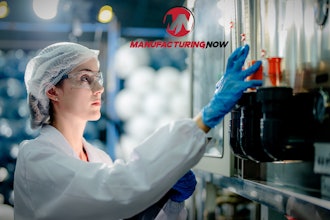Editor's Note: Download the audio version below and click here to subscribe to our newsletter.
This week, Jill Ellsworth, founder and CEO of Willow Industries, talks about her transformation from running a successful cold-pressed juice company to creating startup Willow Industries, a manufacturer and service provider dedicated to cannabis decontamination.
Ellsworth is a registered dietician with a Master’s degree in food science nutrition. About seven years ago, she started a cold press juice company in Santa Barbara, California, with another location in Denver. She pivoted the company to a beverage distributor based in Denver, which she eventually sold. An entrepreneur, Ellsworth was looking for her next move. At the same time, cannabis had become legal in Colorado and she found that many of the food safety regulations that shaped her previous venture didn't exist in the nascent industry.
While cultivators were required to test batches of flower for potential contaminants, they lacked the resources to remedy any potential problems. Ellsworth saw a need and decided the time was right to found Willow Industries and develop a system for cultivators faced with contamination. The move was also a consumer safety play. In food, the technology is called the kill step, and it’s typically the final stage in the food manufacturing process — during which potentially deadly pathogens are removed from a product before it reaches a customer. She wanted to create a kill step for cannabis.
Testing requirements have become more robust in the past five years, yet they remain very siloed and state-specific. The kill step remains optional, but Ellsworth says cultivators should expect it to become required with federal legalization.
The team at Willow created a system that uses ozone to safely clean cannabis flower and trim without sacrificing quality, flavor or effect. The technology was designed specifically for cannabis. Ellsworth could have adopted technology from other industries and tried to make it work for cannabis, but she wanted to make a system that was appropriate and applicable for cannabis. The result is an organic, gentle solution that doesn't alter terpenes, cannabinoids or structure, and extends product shelf-life.
Ellsworth sees her product as an insurance policy that protects companies against product recalls. Recalls can be a brand-killer, and Willow offers companies the ability to market “clean cannabis,” not unlike the USDA organic and Non-GMO verified labels found in the food and beverage industry.
The WillowPure system is a plug-and-play machine that cultivators can rent or lease; the company also provides onsite processing as a service. Ellsworth prefers a leasing model to traditional sales. As they continue to innovate at Willow, leases make it easier for customers to upgrade to keep pace with the industry. The system processes 10 to 15 pounds per run, on average, but the amount of product and treatment time depends upon the type of product and amount of contamination. For companies using WillowPure as a kill step, treatment times range from one to four hours. Serious contamination cases can take up to eight hours to process.
In October 2019, the company opened the first non-extraction-based cannabis remediation facility in the country near Oakland, California. The facility offers cannabis cleaning for any licensed growers in California.
According to Ellsworth, the ROI turns from service to leasing at about 10,000 square feet of cultivation. At such volumes (and higher), a long-term lease agreement is ideal, but it depends on the market. For example, Oklahoma has many licensees with small batches and plant counts, so Willow’s services business does well in the state. In Michigan, Massachusetts and Florida, it makes more sense for huge cultivations to bring a WillowPure system in-house.
Diversification helped Ellsworth navigate the coronavirus pandemic. While she was forced to pause on-site services and rentals, the lease side of the business helped prop up the company. Willow returned to full operation in Q4 of 2020.
Her new career is vastly different from her previous role, but Ellsworth remains committed to the industry, planning to “double down on cannabis” with new products coming out soon. R&D remains challenging — because Willow isn’t a license holder in Colorado, it's difficult to procure the material necessary to test prototypes.
Ellsworth plans to continue to educate the industry on the importance of clean cannabis. She stressed that when the FDA gets involved, changes are going to be swift and cultivators need to be ready to meet the task.
Willow now has 20 employees, most based at its headquarters in Denver. The company’s products are operating in 22 different states.
Please make sure to like, subscribe and share the podcast. You could also help us out a lot by giving the podcast a positive review on Apple podcast or whatever platform you use. Finally, to email the podcast or suggest a potential guest, you can reach David Mantey at David @cannabisequipmentnews.com with “Email the Podcast” in the subject line.






















